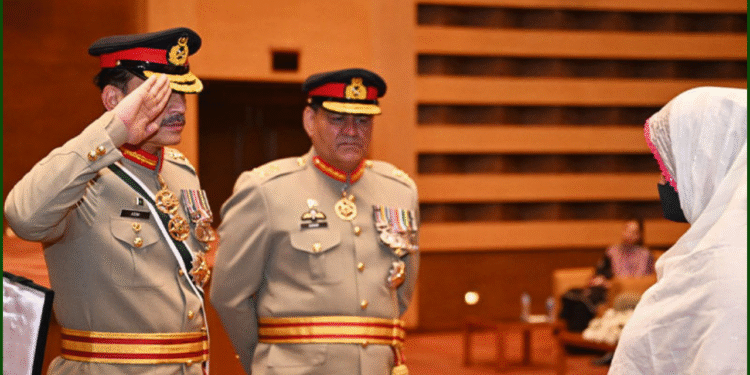RAWALPINDI, May 2, 2025 — Pakistan’s military leadership has issued a strong warning to India, promising a “firm and resolute” response to any aggressive actions, as tensions between the two nuclear-armed neighbors escalate following recent developments in the region. The statement came during a high-level Special Corps Commanders’ Conference chaired by Chief of Army Staff General Syed Asim Munir at the General Headquarters in Rawalpindi, according to the military’s media wing.
The meeting was convened in the wake of a deadly attack on April 22 in Pahalgam, a tourist destination in Indian-administered Jammu and Kashmir, which claimed the lives of 26 visitors. India has pointed fingers at Pakistan for the incident, a claim Islamabad has firmly rejected, calling for a transparent and impartial investigation. In response, India imposed severe measures, including halting the Indus Waters Treaty, canceling visas for Pakistani citizens, and sealing the Wagah-Attari border crossing. Pakistan retaliated by expelling Indian diplomatic staff, revoking visas for Indian nationals (except for Sikh pilgrims), and closing its side of the border.
During the conference, Pakistan’s military conducted an in-depth assessment of the regional security landscape, with a particular focus on the deteriorating relations with India. The leadership reiterated its commitment to safeguarding Pakistan’s sovereignty and territorial integrity against any external threats or provocations.
General Munir praised the armed forces for their professionalism, high morale, and readiness to counter any challenges. He emphasized the strong bond between the military and the Pakistani people, stating that the nation stands united in defending its homeland. The general also underscored the need for constant vigilance and proactive measures to ensure national security across all domains.
The military expressed serious concerns over what it described as India’s escalating human rights violations in Jammu and Kashmir, particularly following the Pahalgam incident. It condemned the targeting of civilians along the Line of Control by Indian forces, calling such actions inhumane and a deliberate attempt to heighten regional instability. The leadership vowed that any provocations would be met with a measured but firm response.
The conference also highlighted what Pakistan’s military perceives as India’s recurring strategy of exploiting crises for political and strategic gains. The statement drew parallels to past events, such as the 2019 Pulwama attack, which India used as a pretext to revoke Jammu and Kashmir’s special status. The military suggested that the Pahalgam attack might be part of a calculated effort to shift attention from India’s internal challenges and disrupt Pakistan’s progress on its western border and economic recovery.
A significant point of contention raised during the meeting was India’s suspension of the Indus Waters Treaty, which Pakistan views as an alarming attempt to weaponize water resources. The military warned that such actions threaten the livelihoods of millions of Pakistanis and could further destabilize the region.
The forum also claimed to have evidence of India’s involvement in subversive activities within Pakistan, labeling these as state-sponsored efforts to undermine the country’s stability. The military vowed to counter these actions decisively, reaffirming its commitment to maintaining peace while protecting national interests.
In closing, General Munir expressed full confidence in the preparedness and morale of Pakistan’s armed forces, stating that the nation is ready to respond to any threats across the full spectrum of challenges. The military leadership called for de-escalation and urged the international community to address the root causes of the ongoing tensions in the region.

















































